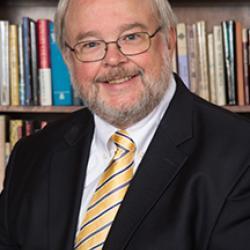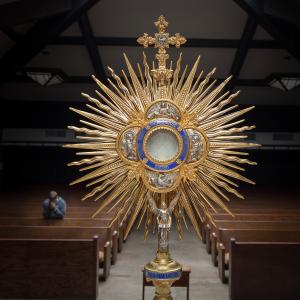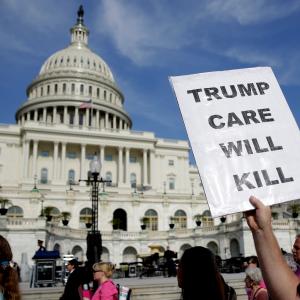
John Carr is the director of the Initiative on Catholic Social Thought and Public Life at Georgetown University. He is a former columnist for America. He served for more than two decades as director of the Department of Justice, Peace and Human Development at the United States Conference of Catholic Bishops.
Posts By This Author
Eight Lessons to Help Us Move Forward from the Sex Abuse Crisis
For me, clerical sexual abuse is personal, professional, and institutional. It has haunted my service of the church for more than five decades, involving the abuse of people, power, and trust and a clerical culture that enabled it and covered it up. My experiences have taught me several lessons that I believe will be helpful as the church moves forward.
Taking Health Care from the Sick and Hungry
As Congress returns and as leaders of the Senate and House continue their desperate search for ways to pass their health and budget proposals, I have one simple question for those whose votes will decide these matters: Is this really why you came to Washington, to take health care from the sick and food from the hungry?
Cardinal Virtues
The day Joseph Cardinal Bernardin was buried, I was representing the U.S. Bishops Conference in South Africa. I deeply regretted missing the funeral of a bishop who had become a mentor and friend. As we met with leaders of church and government in South Africa, it sometimes seemed like Chicago. So many shared their remembrances of Cardinal Bernardin and their sense of loss. How could someone touch so many so far away?
Bernardin, the PBS documentary produced by Frank Frost and Martin Doblmeier, helps answer that question. In an age when ecclesial leaders face so many doubts and challenges, Cardinal Bernardin opened hearts and minds by the way he lived and died, served and led. Most people know him for his dignified response to false charges of sexual misconduct and for the faithful way he lived with and died from cancer. This production places both these struggles in a broader and deeper context of personal faith and public ministry.
This is not an easy task. The producers had no special access or final interview. But they have pulled together from photos, news clips, and interviews an hourlong biography that is admiring and accurate, rich in detail, and sweeping in its coverage of Cardinal Bernardin’s life and ministry.
The program initially focuses on his roots—he was raised in the American South by a hard-working Italian immigrant widow. It follows the young priest as he was shaped by Vatican II and in turn helped shape the U.S. Bishops Conference into a new instrument of collegiality and public witness. It documents how his leadership was shaken and formed by the racial traumas of the ’60s and the abortion debate of the ’70s. It reports how Bernardin led the American bishops to challenge U.S. policy on nuclear arms. The producers address, but do not dwell on, the difficulties he faced when his actions in the 1976 presidential campaign led to accusations of political partisanship and the pain resulting from closing Chicago parishes and schools.

